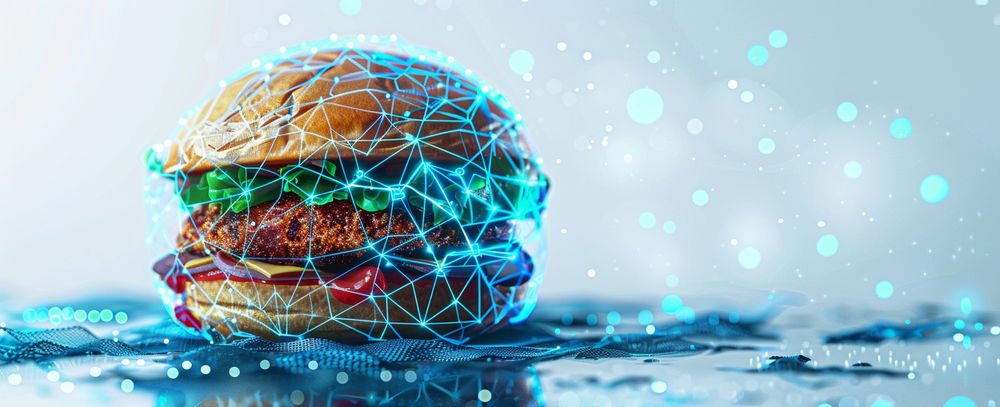AI & nutrition: chatbots are only suitable for nutritional recommendations to a limited extent
Study by the University of Hohenheim: ChatGPT and Gemini create healthy nutrition plans for average people - but fail due to special diets
Advertisement
Whether breakfast, dinner or a snack: ai chatbots not only provide recipes, but also nutrition plans for different diets. A joint study by the University of Hohenheim in Stuttgart and the Max Rubner Institute shows: The suggestions made by the AI chatbots ChatGPT and Gemini (previously Bard) are usually healthier than what humans eat on average every day. However, the AI chatbots cannot replace professional nutritional advice: vegan diet plans in particular were lacking in vital nutrients.
Freely accessible AI chatbots such as ChatGPT not only provide answers to complex questions, but also generate individual nutrition plans. The chatbots are therefore also used by people as a tool for nutritional questions, says Dr. Maren Podszun from the Department of Biofunctionality of Food at the University of Hohenheim: "If the chatbots can create individual daily plans, they should provide both laypeople and nutritionists with correct information."
Together with Prof. Dr. Simon Hammann, Head of the Department of Food Chemistry and Analytical Chemistry at the University of Hohenheim, and Dr. Bettina Hieronimus from the Max Rubner Institute, the nutritionist investigated the extent to which AI-based chatbots are suitable for nutritional recommendations: "We wanted to find out whether ChatGPT and Gemini can create daily plans for different diets that cover all the nutrients necessary for a healthy diet," says Dr. Podszun.
AI-generated daily plans for vegan, vegetarian and omnivorous diets
The researchers had ChatGPT and Gemini generate a total of 108 daily plans for a fictitious female person with different diets: Sometimes the woman ate meat, sometimes vegetarian or vegan.
"We also varied the complexity of the chat requests, known as prompts," explains Dr. Podszun. "This allowed us to test whether a simple lay prompt leads to worse results than a complex prompt that experts could formulate."
The scientists then compared the nutrient content of the AI-generated daily plans with the reference values of the National Academies of Sciences, Engineering and Medicine.
AI daily plans contain too much protein and are aimed at weight loss
The daily plans included foods and recipes with exact gram specifications for breakfast, lunch and dinner as well as for various snacks. "The chatbots provided different meal suggestions, but overall came to similar results in terms of nutrient content," explains Dr. Podszun. Varying the prompts did not show any significant differences in the results either.
The majority of the plans met most of the reference values. "However, the AI daily plans contained too little energy, carbohydrates and vitamin D on average. From a nutritional point of view, this is not dramatic for healthy people with occasional consumption and sufficient vitamin D synthesis," explains Dr. Podszun. "However, the rather small portion sizes and low calorie content can lead to unintentional weight loss over time."
The protein content was significantly higher than recommended, especially in the diet plans with meat: "The AI chatbots seem to be picking up on the current trend towards a high-protein diet," concludes Dr. Podszun.
Caution is advised with restrictive diets
The vegan diet plans were rather inadequate: both chatbots lacked vitamin B12 in their vegan diet plans, which is important for a healthy nervous system, blood formation and neurological processes. Gemini had also integrated animal products into the vegan diet.
"Vegans cannot get enough vitamin B12 from food because it is contained in animal products. They therefore have to take the nutrient in the form of food supplements or fortified foods," explains Dr. Podszun.
Gemini has never recommended supplementation of the vitamin, ChatGPT only sometimes.
Conclusion: a good source of inspiration - but nothing more
"The AIs' suggestions were mostly healthier than what people in Germany eat on average every day," summarizes Dr. Podszun. "So the plans are definitely suitable for daily meal inspiration. Qualified professionals could use the AI chatbots' suggestions as inspiration for their professional practice."
However, Dr. Podszun adds that the AI chatbots are not yet a substitute for professional nutritional advice. "Anyone who has a restrictive diet, for example a vegan diet or suffers from intolerances, should not rely on the chatbots."
The nutritionist advises continuing to seek support from certified nutritionists: "Otherwise, there is a risk of nutritional deficiencies and other health consequences."
Note: This article has been translated using a computer system without human intervention. LUMITOS offers these automatic translations to present a wider range of current news. Since this article has been translated with automatic translation, it is possible that it contains errors in vocabulary, syntax or grammar. The original article in German can be found here.
Other news from the department science
Most read news
More news from our other portals
See the theme worlds for related content
Artificial intelligence (AI) for food and beverages
Artificial intelligence (AI) is optimizing the food and beverage industry through automated quality control and more accurate demand forecasting. AI plays a particularly important role in product development by analyzing taste preferences and market trends. This allows new products to be developed that are better tailored to consumer needs, increasing efficiency and customer satisfaction.

Artificial intelligence (AI) for food and beverages
Artificial intelligence (AI) is optimizing the food and beverage industry through automated quality control and more accurate demand forecasting. AI plays a particularly important role in product development by analyzing taste preferences and market trends. This allows new products to be developed that are better tailored to consumer needs, increasing efficiency and customer satisfaction.





























































